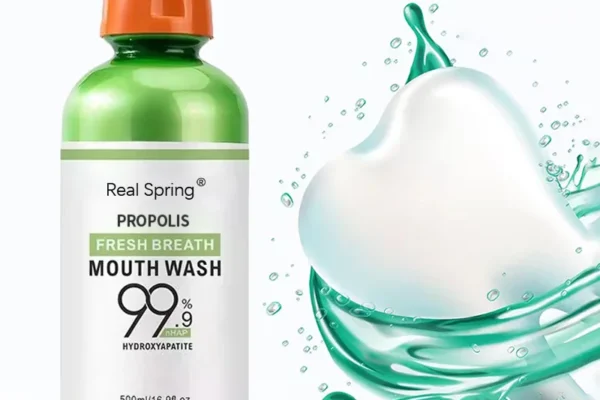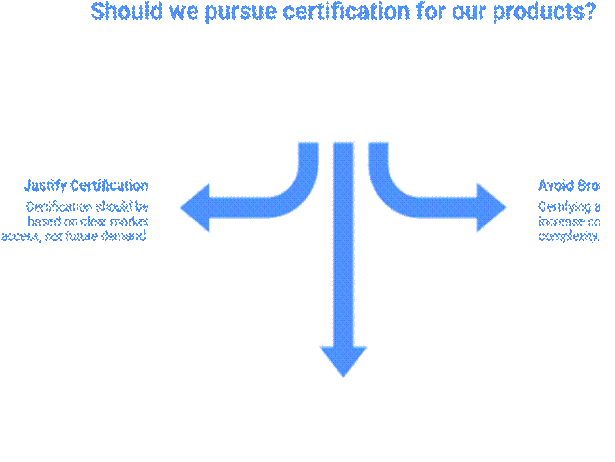Com tantas marcas de pasta de dente no mercado, destacar-se exige qualidade superior do produto. A boa notícia? A parceria com um Fabricante de Equipamento Original (OEM) permite que você crie sua própria pasta de dente de marca própria. Basta escolher um fabricante de pasta de dente confiável e de alta qualidade para dar vida à sua marca.
Um OEM ajuda você a eliminar o custo de instalação do equipamento de produção. Você também garante a qualidade e a conformidade do seu produto, controlando os custos. Um fabricante de pasta de dente de alta qualidade dará ao seu produto uma vantagem competitiva.
Aqui, discutiremos as principais dimensões e estratégias práticas para a seleção de fabricantes de pasta de dente. Também destacaremos os principais elementos da pasta de dente, suas funções e o processo de produção.

Índice
Elementos-chave na produção de pasta de dente
Os elementos-chave no design da fórmula de um creme dental têm funções diferentes. Seu objetivo é limpar e prevenir a formação de placa bacteriana e cáries, além de fornecer outras soluções odontológicas. Os ingredientes do creme dental usados no design da sua fórmula devem ser seguros e atender às necessidades dos seus clientes.
Um creme dental pode ter uma combinação de elementos que lhe conferem um design de fórmula único. Fabricantes de creme dental de alta qualidade devem ser capazes de desenvolver a combinação de elementos que você escolher. O fabricante pode produzir um produto com marca própria, logotipo e identidade visual.
A produção de pasta de dente tem séculos de história, e a fórmula moderna existe desde a década de 1940. Alguns produtos têm receitas únicas, mas a maioria tem ingredientes básicos comuns. De acordo com seus clientes, pasta de dente certa depende dos ingredientes que você usa na fórmula.
Aqui estão os principais elementos na produção de pasta de dente:
Composição básica dos ingredientes
Os ingredientes básicos encontrados na maioria dos cremes dentais comuns visam a limpeza da superfície. Eles também previnem acúmulo de placa que leva à doença gengival como a periodontite. No entanto, outros elementos mantêm a textura e o método de administração. composição básica dos ingredientes da pasta de dente é:
- Fluoreto: É o elemento-chave encontrado na pasta de dente que combate as cáries. O flúor fortalece o esmalte dos dentes, reduzindo o desgaste causado por alimentos e bebidas ácidas e, assim, prevenindo cáries. Embora cremes dentais sem flúor existir, seu produto só pode se qualificar para o Associação Odontológica Americana (ADA) Selo de Aceitação se contiver flúor.
- Abrasivos: São elementos inativos que removem fisicamente resíduos e manchas superficiais dos dentes. Eles não reduzem o risco de cáries e doenças gengivais. Os abrasivos modernos padrão incluem carbonato de cálcio, óxidos de alumínio hidratados e sílica gel desidratada.
- Limpadores: São como detergentes, deixando o creme dental com uma espuma agradável durante a escovação. A espuma ajuda os outros ingredientes ativos a revestirem os dentes uniformemente. Os limpadores de creme dental comuns incluem lauril sulfato de sódio (SLS), cocamidopropil, acil glutamato dissódico e lauril glicosídeo.
- Hidratantes: Também conhecidos como umectantes, são os elementos que mantêm a pasta de dente úmida e evitam que ela se esfarele. Exemplos incluem o sorbitol, um agente aromatizante, juntamente com o propilenoglicol, a glicerina e o glicerol.
- Sabores: Os principais ingredientes do creme dental não têm sabor agradável, por isso os produtos de creme dental contêm muitos agentes aromatizantes. Os sabores do creme dental vêm de adoçantes, como sorbitol ou sacarina. Açúcar, que causa cáries, não deve ser usado. A ADA não concede seu Selo de Aprovação a cremes dentais que contenham açúcar.

Fórmulas personalizadas para necessidades específicas
Um fabricante de alta qualidade deve ser flexível e capaz de trabalhar com uma nova fórmula personalizada. O design da fórmula pode atender a necessidades como remineralização dos dentes ou gengivas. A personalização permitirá que você crie fórmulas para dentes sensíveis ou cremes dentais clareadores.
Você precisa de um fabricante capaz de trabalhar com vários elementos como hidroxiapatita, polipeptídeo e carvão. A personalização da fórmula ajuda você a desenvolver um produto exclusivo de marca própria, direcionado a um público-alvo específico.
Outro costume elementos que você pode usar na fórmula da pasta de dente o design inclui:
- Hortelã
- Xilitol
- Bicarbonato de sódio
- Nitrato de potássio
- Fluoreto estanoso
- Berryoxide
- Carvão
- Óleo da árvore do chá
Ingredientes nocivos a evitar na pasta de dentes
Ao desenvolver a fórmula do seu creme dental, você precisa evitar ingredientes nocivos. Um fabricante de creme dental de alta qualidade pode aconselhá-lo sobre ingredientes tóxicos. Tais ingredientes ou substitutos podem afetar negativamente a saúde bucal e o bem-estar dos clientes.
Ingredientes nocivos farão com que seu creme dental não tenha aprovação e certificação. Além disso, os consumidores hoje estão mais conscientes sobre o que consomem e seus efeitos na saúde.
Lista de ingredientes de alto risco
Esses elementos podem ter efeitos colaterais nos usuários e apresentar alguns efeitos médicos adversos com o uso prolongado. Ingredientes de pasta de dente de alto risco incluem:
- Lauril Sulfato de Sódio (SLS)
- Triclosan
- Microplásticos
- Propilenoglicol
- Adoçantes artificiais
- Dietanolamina (DEA)
- Parabenos
Soluções Alternativas e a Aplicação de Ingredientes Naturais
Você deve procurar um fabricante capaz de incorporar soluções alternativas e ingredientes naturais para pastas de dente. Hoje, muitas pessoas estão optando por produtos naturais e sem produtos químicos. Esses ingredientes vêm principalmente de extratos de plantas como nim, coco, bambu e eucalipto.
Existe também uma tendência de utilização de produtos sem fósforo, sem SLS ou Sem flúor pasta de dente. Certifique-se de que o fabricante da pasta de dente seja capaz de usar outras alternativas.

Processo de produção de pasta de dente
O processo de produção de pasta de dente consiste nas seguintes etapas: preparação dos ingredientes, mistura, enchimento dos tubos e embalagem. Você deve verificar os fatores para confirmar se as fábricas seguem esse procedimento.
- Equipamentos para tratamento de água: As fábricas usam água limpa e segura para produzir pasta de dente. Água pura garante a segurança dos seus clientes e evita a contaminação com elementos tóxicos.
- Tecnologia de Fabricação: Procure um fabricante que utilize produção coloidal ou tecnologia de mistura a vácuo para preparação e mistura de matéria-prima.
- Medidas de verificação de controle: Para manter a qualidade, selecione um fornecedor de pasta de dente usando testes microbianos e de nível de pH.
- Capacidade do equipamento de produção: Os equipamentos e a tecnologia de um fabricante podem se tornar uma barreira. Eles podem inibir sua invenção inicial ou desenvolvimentos futuros. Selecione uma fábrica que utilize misturadores planetários duplos e obturações assépticas. Essa é a tecnologia atual usada na indústria de pastas de dente.
- Usos da Tecnologia Sustentável: O fabricante de pasta de dente deve ser capaz de implementar tecnologias sustentáveis. O fabricante deve ser capaz de trabalhar com tubos biodegradáveis e produtos descartáveis em sistemas de tratamento de águas residuais.
- Proteção da fórmula: Verifique se o seu fabricante consegue proteger a patente contra violação. O fornecedor também deve ser capaz de realizar atualizações inteligentes.

Como escolher um fabricante de pasta de dente?
Há vários fatores que você deve considerar ao escolher um fabricante de pasta de dente. Não opte por um fornecedor de pasta de dente barato por causa das margens de lucro. Você deve verificar os seguintes fatores-chave antes de escolher um fabricante de pasta de dente.
Verificações de qualificação e conformidade
Os fabricantes de pasta de dente que você escolher devem possuir as qualificações e certificações de conformidade necessárias. As certificações a serem verificadas incluem:
- Registro da Administração Nacional de Medicamentos: Conformidade com FDA, REACH da UE e outros órgãos de administração de medicamentos. As certificações garantem que o fabricante segue rigorosos padrões de higiene, segurança e qualidade.
- ISO: Demonstra adesão aos padrões internacionais de gestão da qualidade.
- Boas Práticas de Fabricação (BPF):As Boas Práticas de Fabricação (BPF) indicam que o fornecedor de pasta de dente usa processos de fabricação que atendem aos padrões da indústria de segurança e qualidade.
Outras incluem certificações orgânica e cruelty-free, caso você prefira ingredientes orgânicos para pastas de dente. Esta última é para consumidores com consciência ética. Ela garante aos clientes que o fabricante não testa o produto em animais.
Capacidade de Produção e Força Técnica
Fábricas de pasta de dente adequadas devem ter um departamento de pesquisa e desenvolvimento estabelecido. O departamento de P&D do seu fornecedor de pasta de dente deve possuir equipamentos de laboratório que utilizem tecnologia atualizada. Certifique-se de que o seu fabricante tenha capacidade e pessoal para realizar testes e desenvolver novas fórmulas de pasta de dente.
Procure um fabricante de pasta de dente capaz de produzir pequenos lotes para testes. O fornecedor de pasta de dente também deve ser capaz de aumentar as quantidades conforme o mercado se expande.
Você também deve perguntar sobre a quantidade mínima de pedido (MOQ) do fabricante. Durante a inicialização, a MOQ do fabricante pode ser muito grande.
Outro ponto forte técnico é a capacidade de personalizar a embalagem. Um fabricante de pasta de dente de alta qualidade pode trabalhar com uma embalagem de design personalizado.
Análise de Custo-Efetividade
O principal objetivo de criar seu próprio creme dental é lucrar e aumentar seu patrimônio. A transparência de custos contribuirá significativamente para garantir que você alcance as margens de lucro desejadas. Certifique-se de que os fabricantes de creme dental de marca própria sejam transparentes quanto aos custos de matéria-prima, mão de obra e outras despesas gerais.
Você também precisa buscar informações sobre o uso de modelos de cooperação, como fabricante de equipamento original (OEM) ou produção de marca própria. Verifique também se o fabricante permite pesquisa e desenvolvimento conjuntos, o que pode reduzir custos.
Não recomendamos correr para os fornecedores de pasta de dente mais baratos. Alguns fabricantes baratos podem comprometer a qualidade para reduzir custos. Portanto, procure um fabricante que ofereça um produto competitivo. Outros podem frustrá-lo mais tarde, quando seu negócio crescer, por não atender aos seus pedidos.
Estabilidade da Cadeia de Suprimentos e Suporte de Serviços
Você precisará de fabricantes de pasta de dente que garantam o fornecimento constante do seu produto. Certifique-se de que o fabricante escolhido tenha uma parceria de longo prazo com o fornecedor. Esse relacionamento garante um fornecimento constante de matéria-prima. Além disso, verifique como eles gerenciam seu estoque. Uma boa gestão de estoque mantém a qualidade e a produção constante.
Outro ponto importante a considerar em relação à estabilidade da cadeia de suprimentos e ao suporte ao serviço é o serviço pós-venda. Um fabricante de alta qualidade terá um mecanismo de resposta rápida a problemas. Ele também deve oferecer diversos serviços de pós-venda. Escolha um fornecedor de pasta de dente que possa responder rapidamente a um problema e ofereça serviços de pós-venda.
Garanta que o fabricante do seu creme dental possa se adaptar às mudanças do mercado para evitar atrasos no fornecimento. Se o fabricante do seu creme dental causar atrasos no fornecimento, isso pode afetar suas vendas. Atrasos no fornecimento prejudicam a confiança dos consumidores no seu produto.
Gestão de Riscos e Conformidade Legal
Durante as negociações e antes de se comprometer, certifique-se de compreender as condições e os termos de operação. Certifique-se de conhecer os pontos de entrega e os cronogramas do fabricante. Você também deve se informar sobre sua responsabilidade legal em caso de reclamações de qualidade por parte de seus clientes.
O fabricante também deve respeitar a proteção da propriedade intelectual. Um fabricante de pasta de dente de alta qualidade protege o design da sua fórmula contra violações.
O fabricante deve permitir verificações de conformidade, visto que você pode não estar disponível em tempo integral durante a produção. Ele também deve permitir inspeções no local durante a produção. As inspeções são necessárias para garantir a limpeza e o controle de qualidade.

Tendências da indústria e direções futuras
Ao selecionar fabricantes de pasta de dente, procure uma empresa que esteja atualizada com as tendências atuais do setor e seja capaz de se adaptar às tendências futuras. Alguns dos fatores que você deve considerar incluem:
Inovações tecnológicas na produção de pasta de dente
Isso inclui o uso de laboratórios de alta tecnologia em pesquisas. Você deve confirmar se o fabricante utiliza equipamentos modernos para garantir a limpeza e a qualidade do seu creme dental.
Fabricantes de alta qualidade atualmente utilizam dispositivos de IA e IoT para monitorar processos. A produção inovadora ajuda a manter a consistência e a qualidade de um produto. Também elimina erros humanos.
Hoje, as preocupações com a produção estão se tornando mais sustentáveis. Fabricantes inovadores estão trabalhando com materiais de baixo carbono para evitar maiores danos à camada de ozônio. Considere um fabricante que utiliza embalagens recicláveis, visando controlar a poluição.
Transformação orientada pela demanda do mercado
O fabricante também deve ser transparente sobre os ingredientes utilizados. Há uma demanda crescente por transparência por parte dos consumidores. As pessoas estão mais conscientes dos benefícios e efeitos colaterais dos ingredientes de um produto.
Além disso, certifique-se de que seu fabricante seja capaz de se adaptar ao mercado. Um exemplo é quando você deseja lançar um creme dental personalizado voltado para uma função específica. Seu fabricante, portanto, deve ser capaz de fabricar diferentes categorias de creme dental.
A evolução dos papéis dos fabricantes
Um fabricante de alta qualidade permitirá a transição conforme a demanda aumenta. A parceria com fabricantes de pasta de dente de alta qualidade também pode contribuir para suas estratégias de marketing.
O fornecedor de pasta de dente também deve deixar espaço para futuros ajustes contratuais. Posteriormente, você pode querer fazer parceria com o fabricante. Verifique se o acordo permite o uso das instalações do fabricante para pesquisa e desenvolvimento de outras fórmulas.
Certifique-se de que o fabricante do seu creme dental permita a colaboração entre setores. Essa cláusula é necessária quando você deseja desenvolver um creme dental especializado em colaboração com instituições médicas.

Conclusão
Selecionar os fabricantes de pasta de dente certos garante que seu produto atenda às qualificações e certificações necessárias. Você também desfrutará da tecnologia deles, que reduz os custos de produção. A tecnologia de um fabricante de pasta de dente de alta qualidade também lhe proporcionará um produto competitivo. Outro benefício é a redução de riscos na cadeia de suprimentos e na produção. Além disso, ao firmar o contrato, você deve buscar uma cooperação de longo prazo para acomodar desenvolvimentos futuros. O fabricante também deve fornecer uma sala de avaliação para garantir que a pasta de dente atenda às suas expectativas de acordo com o mercado. À medida que você implementa sua ideia, fabricantes de pasta de dente de alta qualidade o ajudarão a atingir seus objetivos de mercado. Eles também podem ajudá-lo a colaborar com OEMs ou instituições médicas para desenvolver novas fórmulas.
Perguntas frequentes
Como posso garantir que a fórmula da pasta de dente é segura?
Evite ingredientes nocivos como SLS, triclosan, microplásticos, propilenoglicol, adoçantes artificiais, DEA e parabenos. Opte por ingredientes naturais e peça orientação ao fabricante sobre ingredientes tóxicos.
Quais certificações um fabricante de pasta de dente deve ter?
Procure certificações como conformidade com FDA/EU REACH, ISO para gestão da qualidade e GMP para padrões de fabricação. Certificações adicionais incluem orgânico e cruelty free, se aplicável.
Por que a capacidade de produção é importante ao escolher um fabricante de pasta de dente?
Um fabricante deve ter capacidade para produzir pequenos lotes para testes e expandir conforme o mercado cresce. Também deve ter uma quantidade mínima de pedido (MOQ) razoável e a capacidade de personalizar a embalagem.
Como posso garantir que o fabricante segue as tendências do setor?
Procure fabricantes que utilizem tecnologia moderna (por exemplo, IA, IoT) e práticas sustentáveis (por exemplo, embalagens recicláveis). Eles também devem ser transparentes quanto aos ingredientes e capazes de se adaptar às demandas do mercado.







